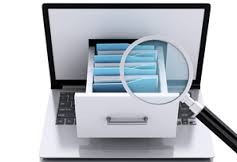News
Record Keeping for Tax Purposes
Posted: 15 December 2015

Frequently our clients ask us these questions with regards to record keeping for tax purposes.
- How long should I keep my records
- Is it acceptable to keep my records in an electronic format, or are paper copies sufficient?
- Why should you keep records?
- How do I know what records I should keep?
How long are you required to keep your records?
Generally speaking, all of your evidence must be kept for five years from the date you lodge your tax return:
i.e. If you lodge your 2015 tax return on 1 December 2015 any records associated with that return (generally) can be destroyed on 2 December 2020.
However:
· If you acquire or dispose of an asset (e.g. shares or a rental property, dividend reinvestment statements) – 5 years after it is certain that no capital gains tax event can happen.
· If you are in a dispute with the ATO – 5 years from the date you lodged your tax return and the dispute is finalised.
The Australian tax system relies on taxpayers self-assessing, so what do you need to keep?
As far as the ATO is concerned, you can store your documents in either format. Remember though…
- If you keep paper copies they must be a true and clear reproduction of the original.
- If you keep your records electronically, we strongly recommend that you keep backup copies – what if your hard drive is corrupted?
Why should you keep records?
- To provide written evidence of your income and expenses.
- To help you or your tax agent prepare your tax return.
- To ensure that you are able to claim all your entitlements.
- In case the ATO asks you to prove the information you provided in your tax return.
What records should you keep?
- Any payments you have received.
- Any expenses related to payments you have received.
- When you have acquired or disposed of an asset (shares or rental property)
- Any tax deductible gifts, donations and contributions.
You may also need to keep records in some other categories, or for other members of your family – for example, if you receive the family tax benefit.
You may decide not to keep particular records – for example, because you expect to claim for only a small amount of business travel. If it turns out that you travel more than you expected during the year, you may be limited to a smaller claim than if you had kept more records.
If you are unsure about whether to keep or destroy a record please do not hesitate to give one of the team at McAdam Siemon a call.
Kind regards
Rob McAdam


